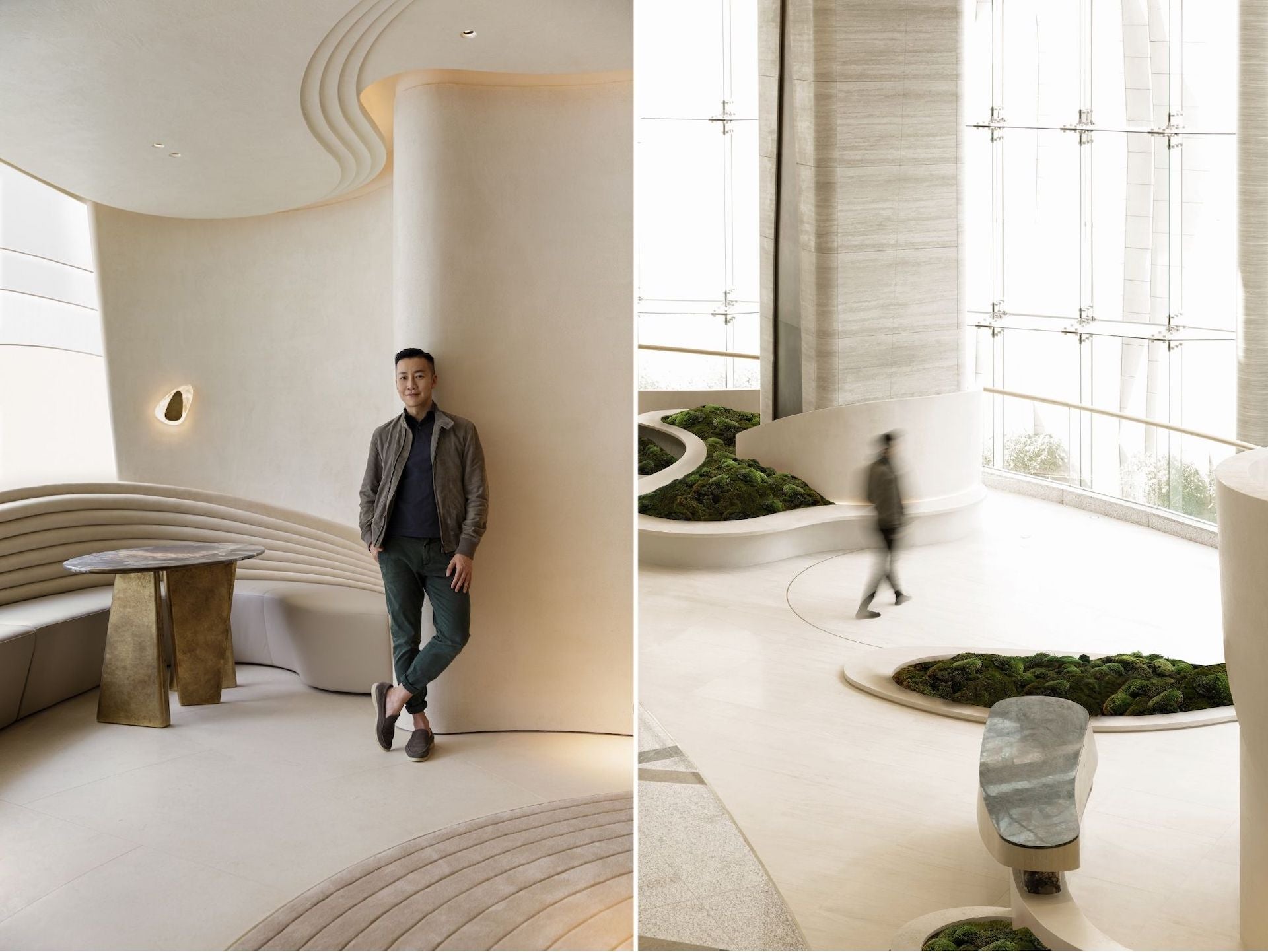Talking Shop
Secret Garden
In the center of Hong Kong, Nelson Chow has created a rich, hidden oasis inspired by nature
With The Garden Pavilion, a new VIP lounge in Hong Kong, interior designer Nelson Chow has created an unexpected oasis in the middle of the city’s hustle and bustle. Drawing on traditional Japanese Zen gardens and natural forms and materials, the designer has created an elegantly luxe, peaceful hideaway. From the ceilings to the floor—and everything in between—Chow’s holistic design transports guests, if even only for a short while, to another world. As Chow puts it, “We focus on engaging through storytelling, developing new ways for people to interact with their world and each other. For us, storytelling is the art of inspiration.”

Tell us a bit about this project’s setting. How does the design of the lounge contrast with the shopping district that surrounds it?
The lounge is located in a luxury shopping center at the heart of Hong Kong’s busiest shopping district. In contrast to the dynamic environment of the shopping mall, the VIP lounge offers a discreet and secluded oasis for VIP shoppers.

What was the inspiration for this design? How did you select the forms and materials of the final elements of the design?
The brief—to create a relaxing getaway—was conceived as an airy, garden-like, contemporary landscape, taking inspiration from the forms of traditional Japanese Zen gardens to create a cocooning escape.
The project covers two distinct areas. The first, a public sculpture garden, is a curving, ivory landscape that houses a florist, a concierge, and an exhibition area for seasonal displays. The second space, a private VIP lounge, unfolds through a series of wavy walls, creating intimate environments with a sense of understated luxury.
A series of undulating curves are a recurring motif that provides an abstract echo of nature. Lines are cut into the plaster of the ceiling in patterns that suggest the raked gravel patterns of a sand garden, while organically shaped sconces and tables are designed to mimic rocks in a garden. We see the arrangement of furnishings as a Zen garden, something fluid that we translate into custom furniture, lighting, and sheer blinds that represent this landscape.

What advice can you share for those who want to create their own relaxing, Zen garden-inspired environment at home?
Colors and textures are important design elements that can create a relaxing environment. We try to avoid anything that appears artificial, so we tend to choose materials like plaster, oxidized metals, and natural stone finishes to evoke a natural and crafted look.
Why do you think creating connections to nature is so important these days?
In Hong Kong, people live such hectic lives, and we are learning that we need to live in harmony with nature. Being connected to nature allows us to live a healthier life, make sustainable decisions, and, on a psychological level, it calms the mind.

How would you describe the relationship between design and storytelling?
Story gives meaning to any design. Story allows us to make design decisions, and it is what makes each project unique.
What are you working on next?
We are working on a number of unique projects of different scale and types, ranging from a drink trolley to a nightclub as well as a residential building.
Thank you, Nelson! ♦

